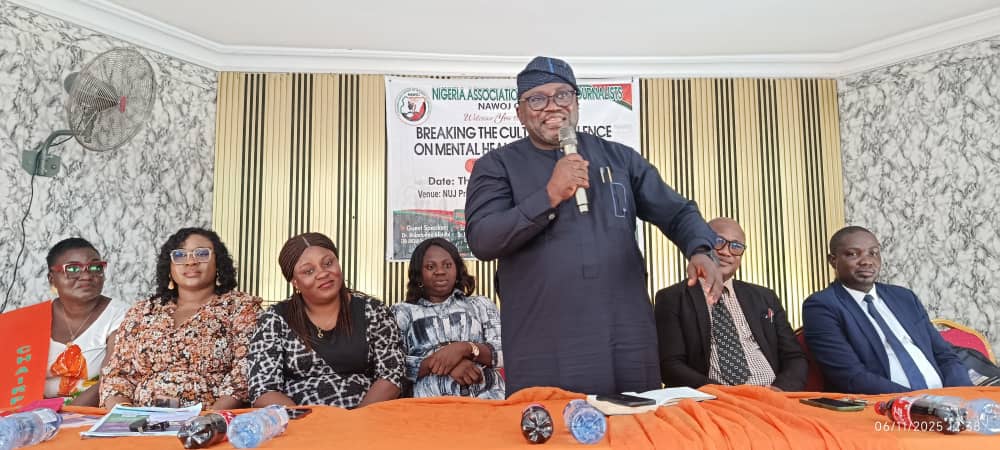Blood On Our Hands: The Huge Cost Of Ignorance (2)
[ad_1]
The most important resource for any organization or nation is its human resource – the people. It should therefore be a no-brainer that any organization or nation that desires to be successful and productive will invest in its human resources. They will ensure that they are equipped and provided with the best tools to enhance their chances of success. The most basic of these investments will be to ensure that your staff or citizens are healthy and fit for purpose.
The World Health Organization (WHO) defines health as a state of complete physical, MENTAL, and social well-being. Thus, health can be conceptualized as a stool sitting on 3 legs: the physical leg, mental leg, and social leg. Are we paying adequate attention to the mental health leg in Nigeria?
Current Realities
We are failing woefully across the spectrum of public health for our citizens: from promotion to prevention to early identification and treatment and lastly, rehabilitation. This is especially true for mental and social well-being and only slightly better (but still a failure) for physical health.
The armed conflicts in the northeasthave been going on for over a decade now, with millions dislocated, thousands dead, and millions traumatized and brutalized -including children and girls forcefully abducted, are we oblivious to the emotional toll? Where are the efforts at winning the minds and societal healing via intensive psychosocial re-engineering and rebuilding? What expectations do we have, if we allow these brutalized children to grow into maturity, feeling abandoned and not cared for?Insecurity and unknown gunmen activities are increasingly making the southeast unsafe. Are we going to just watch as things deteriorate?
Nigeria is predominantly youthful with about half of our population below the age of 18 years. Yet our youths are so frustrated (and I daresay, misguided) that they are willing to cross the desert and risk slavery and treacherous sea crossings in search of a better life. Others are seriously planning and implementing strategies to jump ship and ‘japa’ abroad.This is not right.
Drug abuse is on the increase, insecurity is rife with kidnappings and armed robbery attacks, unemployment rates are high, our infrastructure is poor, and the minds of the youth appear fixated on instant wealth – leading to yahoo yahoo (internet fraud) and other crimes. Yet our politicians do not realize the clear and present danger and the urgent need to inspire hope and chart a clear pathway for progress. As we prepare for national and state elections next year, these issues should be on the front burner if we genuinely wish to make progress.
There is a dearth of mental health professionals to tackle these challenges as we have less than 250 psychiatrists practicing in Nigeria. Some states have no single psychiatrist. The picture is similar for clinical psychologists, psychiatric nurses as well as mental health social workers. Thus, it is not surprising that many citizens with mental health challenges are not able to access the care they need, leading to a treatment gap of about 80% for Nigeria – according to the WHO. This means that only 2 out of every 10 Nigerians with a mental disorder are able to access mental health care.
Criminal Neglect of Mental Health
Ignorance, shame, and stigma remain huge barriers preventing the utilization of mental health services. This is where the role of mental health advocacy and organizations such as the Asido Foundation must consistently engage in public awareness campaigns. With the rising cases of mental illness, drug abuse, and suicides, in an ocean of hopelessness, poverty, and social difficulties, it is a shame that mental health remains neglected by governments at the federal and state levels. The revised mental health policy of 2013 still does not have an accompanying mental health plan to guide implementation – 9 years afterward. There is a Desk Officer for Mental Health at the Federal Level, who needs to be empowered and supported, but less than 5 states have Desk Officers for Mental Health. Attempted suicide remains a crime, punishable by a 1-year jail term; and we still operate an obsolete Lunacy Act of 1958. The revised Mental Health Bill is yet to be signed into law by Mr. President. We earnestly hope that this will take place very soon. Drug abuse is rife and available at all motor parks and street junctions -openly so. Yet we feign surprise at the frequent occurrence of ghastly motor accidents and reckless motorcycle riders.
Conclusion
As we gradually draw down the curtains on 2022 and plan to usher in the new year, it is important that we encourage the government and stakeholders at all levels to focus on the mental health of our citizens in their electioneering as well as subsequent governance, when elected into office. The challenges are numerous, but they are not insurmountable. They only require a conscious and strategic campaign to change minds and attitudes for the better, via societal re-engineering. Nation-building can never be accidental. It must be deliberate and calculated, with a focus on investments in a healthy populace: physically healthy, MENTALLY HEALTHY, and enjoying social well-being.















Post Comment